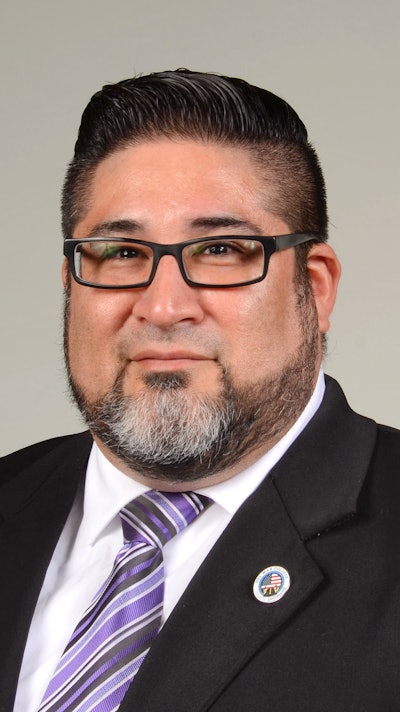 Steven R. Gonzales
Steven R. Gonzales
Research shows there is minimal correlation between familiar standardized testing tools and measures, such as a high school grade point average (GPA), the Scholastic Assessment Test (SAT), or the American College Testing (ACT) exam, and predicting the likelihood of academic success (King et al., 1994; Armstrong, 1999). Community colleges are pivotal for economic growth and upward mobility. However, many community college students never complete, echoing the disappointment of millions of students who fail to achieve their educational goals (Bailey, Jaggars, & Jenkins, 2015). Community college leaders would benefit from rethinking what college-readiness means beyond cognitive skills.
Student-veterans are a fast-growing, niche segment of the nontraditional student population who are specially equipped with non-cognitive attributes attained from enlisted military service.
 Carlos Garanzuay
Carlos Garanzuay
Predominant Non-Cognitive Attributes Commitment/Discipline
The “commitment/discipline” attribute exists in core values held by each of the military branches. Participants indicated that commitment to their mission of academic completion kept them undeterred from success. The prevalence of this attribute indicated it often carried into student-veterans’ post-military life.
Communication/Self-Advocacy
The “communication/self-advocacy” attribute was modeled militarily through effectiveness of operations, the safety of service members, and improvement strategies dependent partly upon clear communication. There was a responsibility associated with having and sharing necessary information. Asking questions, seeking new or clarifying information was standard, sometimes essential, to understanding the unfamiliar terrain of college.
Leadership/Team Building/Military Core Values
From the initial cultural assimilation process into enlisted military life, affectionately referred to as basic military training or boot camp, veterans are cultivated with a collectivist mindset, ideals of teamwork, and leadership of those teams. Despite the more individualist culture of higher education, many activities and assignments are designed specifically to have students practice this attribute.
Goal Setting and Planning
Byrd and MacDonald (2005) explained goal setting/planning as the ability of students to identify short-term and long-term goals that are key to their academic journey. Student-veteran participants stated that by setting a goal, and creating a plan for that goal, they were able to identify key components necessary to advancing through a fluid, unfamiliar environment. Reassessment of the plan occurred when they were presented with new information.
Adaptability
Rumann and Hamrick (2010) proposed that if a student-veteran could learn to adapt more quickly to the culture of higher education, managing the transition process would be less overwhelming. Almost all participants mentioned consciously adapting their behaviors to provide an advantage. That adaptability applied to a variety of contexts, such as expectations, behaviors, or interpersonal communication.
Dr. Carlos A. Garanzuay serves as manager, institutional effectiveness and assessment, Del Mar College (Tex.). Dr. Steven R. Gonzales serves as interim chancellor for the Maricopa County Community College District (Ariz.).
The Roueche Center Forum is co-edited by Drs. John E. Roueche and Margaretta B. Mathis of the John E. Roueche Center for Community College Leadership, Department of Educational Leadership, College of Education, Kansas State University.















